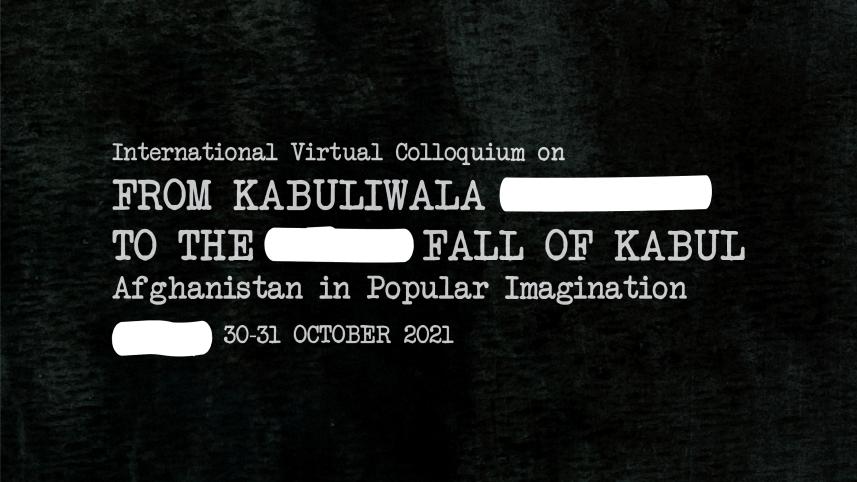From ‘Kabuliwala’ to the fall of Kabul

It is crucial for neighbouring countries and global citizens to think about what the issues prevailing in Afghanistan represent and how the crisis there can be dealt with effectively.
Himadri Lahiri, professor of English at Netaji Subhas Open University (NSOU), India, made this observation yesterday in his keynote speech at the two-day international virtual colloquium titled "From 'Kabuliwala' to the Fall of Kabul: Afghanistan in Popular Imagination", organised by the Department of English and Humanities at University of Liberal Arts Bangladesh (ULAB).
The event began with three Afghan women from a refugee camp in the United States sharing their experiences.
Samira Panahi spoke about her escape from Kabul while under the terrorising rule of the Taliban. "At one point," Samira recalls, "We heard bomb explosions in the area we had been waiting in only an hour ago."
Khadija Monis talked about how she ended up in different countries after the collapse of Kabul under the Taliban. She managed to extract letters from a number of women in the US refugee camp who tell a similar story of woe, of leaving their family, their children behind in Afghanistan. She shared the drastic measures the women of Kabul were being forced to take, like marrying men significantly older than them to escape rape and torture in the hands of the Taliban.
Mina Mushtaq stated that she fled from her beloved country on August 28 as the daughter of an artist whose life remains at risk due to "his work, ethnicity, culture, and heredity." Reading from her father's letter, Mina conveyed, "The Taliban considers [it] [...] permissible to shed my blood and destroy my works."
Acting Vice Chancellor and Dean of School of Arts and Humanities at ULAB Prof Shamsad Mortuza, in his speech, said, "As a liberal arts-centric university, we do not want to confine ourselves to text alone... It is also important for us to humanise these accounts, like that of Tagore's 'Kabuliwala', the countless others that
we come across in contemporary media, and the three women who have just shared their own narratives."
Prof Imran Rahman, special advisor to ULAB's trustee board, said, "Empathy is an integral part of nation-building. It is important for our students to extend a hand to our Afghan sisters now."
Clair Chambers, professor of global literatures at the University of York, also shared her thoughts on Afghanistan in the plenary session, wherein she discussed works of British journalist Yvonne Ridley, who was captured by the Taliban in 2001, and Dutch journalist Bette Dam, who lived and worked in Afghanistan for four years.
Among other sessions, the first day ended with a round-table discussion, led by critic, academic and translator Prof Niaz Zaman, and Prof Lahiri. The session was moderated by Prof Sabiha Huq of Khulna University.
Dr Khan Touseef Osman, research fellow at the department, was the colloquium's convener.
The colloquium will reconvene today to showcase winners of a creative contest and with sessions on Afghanistan's art and heritage, feminist discourse in the country, and more. Speakers will include Professor of English Lilly Want of Islamic University of Science and Technology, Kashmir, and professors Fakrul Alam, Syed Manzoorul Islam, Afzar Hussain, and Sohana Manzoor.



 For all latest news, follow The Daily Star's Google News channel.
For all latest news, follow The Daily Star's Google News channel.
Comments